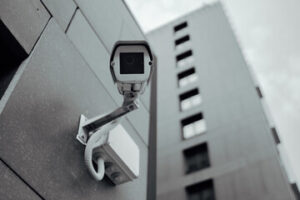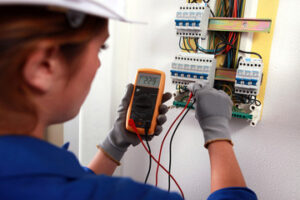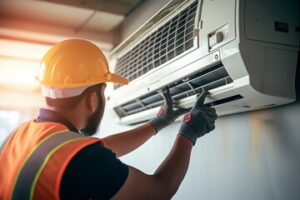Whether corroborating witness testimony or providing layers of evidence to help officers solve a crime, surveillance cameras are a valuable tool for law enforcement.

Ring doorbells, license-plate readers, and networks used by business improvement districts allow police to gain access to private cameras through arrangements with users. To learn more, visit https://visiondetectionsystems.com/.
With video surveillance cameras becoming increasingly common in both commercial and residential settings, requests from police to access private security footage are on the rise. Understanding when police can legally request security camera footage and how to properly cooperate with law enforcement can empower individuals and protect civil liberties.
In general, homeowners and business owners are generally required to comply with any reasonable request from police to share their security footage. However, it is important to remember that the Fourth Amendment allows individuals to expect privacy in their own home and the expectation of privacy does not extend to private property within public view. Additionally, police can tap into a residence’s livestream security camera feed without a warrant if they have probable cause that the information captured on your home security system will prove relevant to their investigation.
High-Definition Security Cameras for Law Enforcement
Police can take advantage of the superior image clarity offered by modern security cameras to make better evidence collection and prosecution decisions. For example, a police body cam like the PatrolEyes IRIS offers 2K HD resolution that captures images in more detail and frames per second than lower quality options. In addition, this lightweight police body cam offers up to 14 hours of recording and consumes very little power.
The superior resolution offered by high definition security cameras also allows police to more easily identify potential suspects and witness testimony. Additionally, the enhanced pixel density found on most security cameras can reduce the need for a large number of storage spaces or expensive cameras, making this technology an attractive option for both law enforcement and civilian use.
Newer police surveillance devices like the Reolink Duo 3 PoE camera offer industry-leading recording fidelity that is ideal for both civilian and law enforcement use. With a best-in-class 16MP resolution and 180-degree wide viewing angle, this camera provides compelling and irrefutable proof of an incident, day or night. In addition, Reolink Duo 3 offers advanced features such as motion tracking, real-time alerts and support for up to 8 network cameras on one device.
Real-Time Alerts
Streaming live video from public and private security cameras to the police center in real time allows law enforcement to monitor events as they unfold. This not only helps prevent crime but also provides valuable information about suspects, witnesses, and other important details to help them solve cases. The public is influenced by the presence of these cameras too, as they know they are being watched, which may deter people from acting in confrontational or unlawful ways during interactions with law enforcement.
In addition, this footage acts as an impartial record in the event of a complaint or lawsuit against the police department, as it can help validate or disprove allegations of misconduct. For example, after the 2013 Boston Marathon bombings, CCTV helped law enforcement identify the suspects and bring them to justice.
A security camera that can detect dwelling (people or vehicles staying in one location for a long period of time) is an essential feature. When configured correctly, these alarms can trigger a high priority response with the police and fire departments. Moreover, they can reduce false alarms and save on service fees by ensuring that only actual burglars get a priority response.
Easy remote access is another benefit of police surveillance camera systems. Unlike security guards, who can only be in a single place at a time, police surveillance systems allow law enforcement to monitor the entire area in real-time, even when they are not on-site. This means that they can respond to incidents immediately and avoid putting their personnel in danger.
Many cities have already deployed RTCCs to combat crime and improve the quality of life for their residents. For instance, the RTCC in Winston-Salem uses a network of camera feeds sourced from both public and private property owners who share their feeds with the police department. These camera feeds are monitored by officers in the RTCC and used to track suspects, as well as provide valuable information about potential hazards or traffic congestion.
Detailed Recordings
Many security camera systems also capture valuable metadata, or “data about data.” This information may include time stamps, whether the system was turned on/off or if any cameras were disabled, when video data was accessed and viewed, who accessed it and if that person used a zoom function. Having this information available can help you verify the legitimacy of any requests from law enforcement.
For instance, if an officer asks to access your home security footage and you believe it’s not legally required or appropriate, you should politely request further details about the incident and the evidence they are seeking. Then, you can determine what legal process may be necessary to confirm the request’s legitimacy.
If the police have an active warrant, court order or judicial subpoena that explicitly requires you to furnish your security footage for a specific case or formal legal proceeding, then you must comply. However, exceptions to these requirements exist in the event of a life-threatening emergency, if officers have a reasonable belief that your security footage will aid in addressing an ongoing crisis and saving lives.
Detailed recording information is also valuable for crime prevention and liability purposes. For example, in the case of an accident, the camera may be able to provide valuable video footage that helps establish what actually happened on site. This can be invaluable when it comes to avoiding costly insurance claims and liability lawsuits related to vehicle accidents.
Cameras can also help validate eyewitness testimonies or even fill in gaps in other types of investigative evidence. If a witness recalls seeing a dark blue minivan speed away from the scene of a crime, security camera footage can validate the make, model and license plate number to assist investigators.
Surveillance cameras are a valuable tool for local governments and communities. As technology continues to advance, however, it’s important that public agencies carefully consider the ways in which they use and share this data. To ensure that their practices are legally sound, MRSC encourages eligible local governments to use our free, one-on-one Ask MRSC service to get answers to any legal, policy or financial questions.
Remote Viewing
Police surveillance cameras offer a level of objectivity that no human witness can match. Crisp and detailed visual documentation of an incident provides a goldmine of evidence for investigators, lawyers and juries. When the police can present an accurate and unvarnished account of what took place, witnesses and victims are less likely to dispute it. Even if a suspect isn’t convicted of an offence, the mere fact that the footage was recorded by police cameras can be enough to discourage them from breaking the law again in the future.
However, surveillance systems also present law enforcement “bad apples” with a tempting opportunity for misuse. For example, an officer in Washington DC was caught using police databases to spy on patrons of a gay club, looking for names that could be used to blackmail them. Similarly, surveillance cameras placed on the roofs of cars could be exploited by criminals to spy on people in their private lives.
As an alternative to centralized police video surveillance, remote CCTV monitoring allows officers to log in to local security cameras from any location with an internet connection. These cameras can detect unusual activity and alert a monitoring station when an alarm is triggered. The monitoring station can then log in to the camera and confirm whether the activity is a threat or not, and alert security services or the police if necessary.
Remote monitoring software typically works with a local network or over an IP connection, including 4G mobile connectivity. However, it is essential that the camera uses secure connections over HTTPS (Hypertext Transfer Protocol Secure), which encrypts data transmissions and protects against hackers. Many vendors include a self-signed certificate and support for Dynamic DNS, which assigns a domain name to a router’s IP address, simplifying remote access.
In addition, it’s important to choose a camera and system that is compatible with existing security infrastructure. Ensure that the camera supports your company’s network security policies, and that it can be integrated with other surveillance technologies like gunshot detection and facial recognition software. Finally, consider whether the initial cost of the camera is worth the long-term benefits, such as reduced manpower costs and fewer losses from theft and vandalism.

